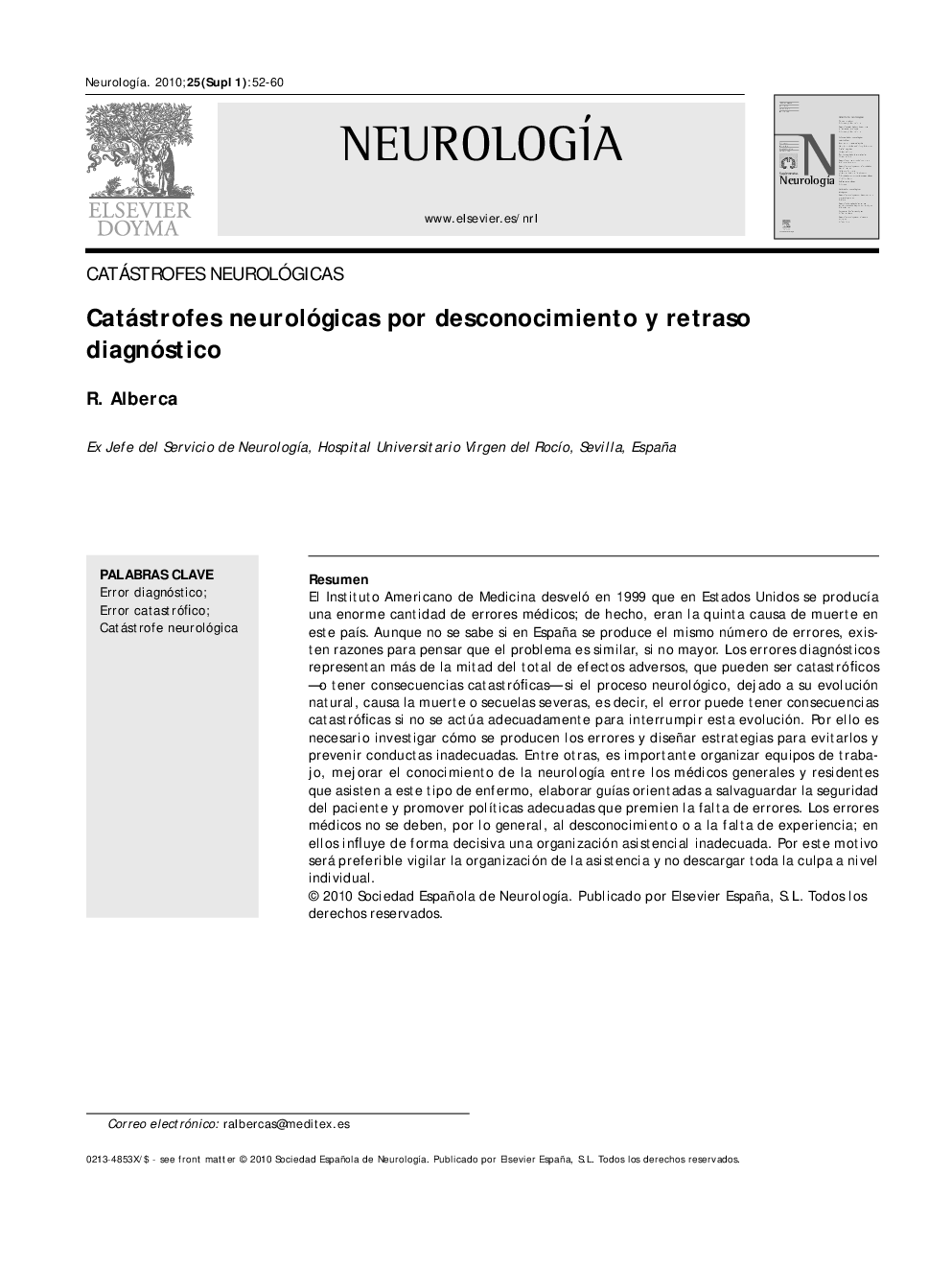| Article ID | Journal | Published Year | Pages | File Type |
|---|---|---|---|---|
| 3076301 | Neurología | 2010 | 9 Pages |
Abstract
In 1999, the American Institute of Medicine reported an enormous rate of medical errors, representing the fifth cause of death. In Spain, there is no reliable information on the number and nature of medical adverse events, but the situation is probably similar to that described in the USA in 1999, if not higher. Diagnostic errors account for more than half of neurological adverse events and these errors can be catastrophic if the natural progression of the neurological disorder causes severe sequels or even death when the patient is left untreated. To improve patient safety, research must be undertaken to determine how these errors are produced and to develop strategies to prevent inappropriate conduct. Among many other elements, it is important to create teamwork, improve neurological knowledge among general practitioners and residents, to design clinical practice guidelines aimed at patient safety, and to promote policies that reward the absence of errors. In general, medical errors are neither exclusively due to lack of experience nor to insufficient medical knowledge, but rather to faulty organization of medical care. Therefore, it is preferable to monitor healthcare organization rather than to blame the individual supposedly responsible for the error.
Keywords
Related Topics
Life Sciences
Neuroscience
Neurology
Authors
R. Alberca,
